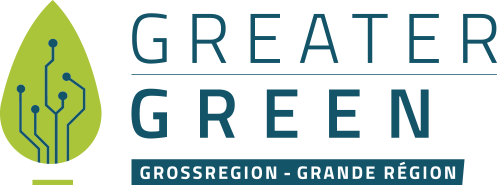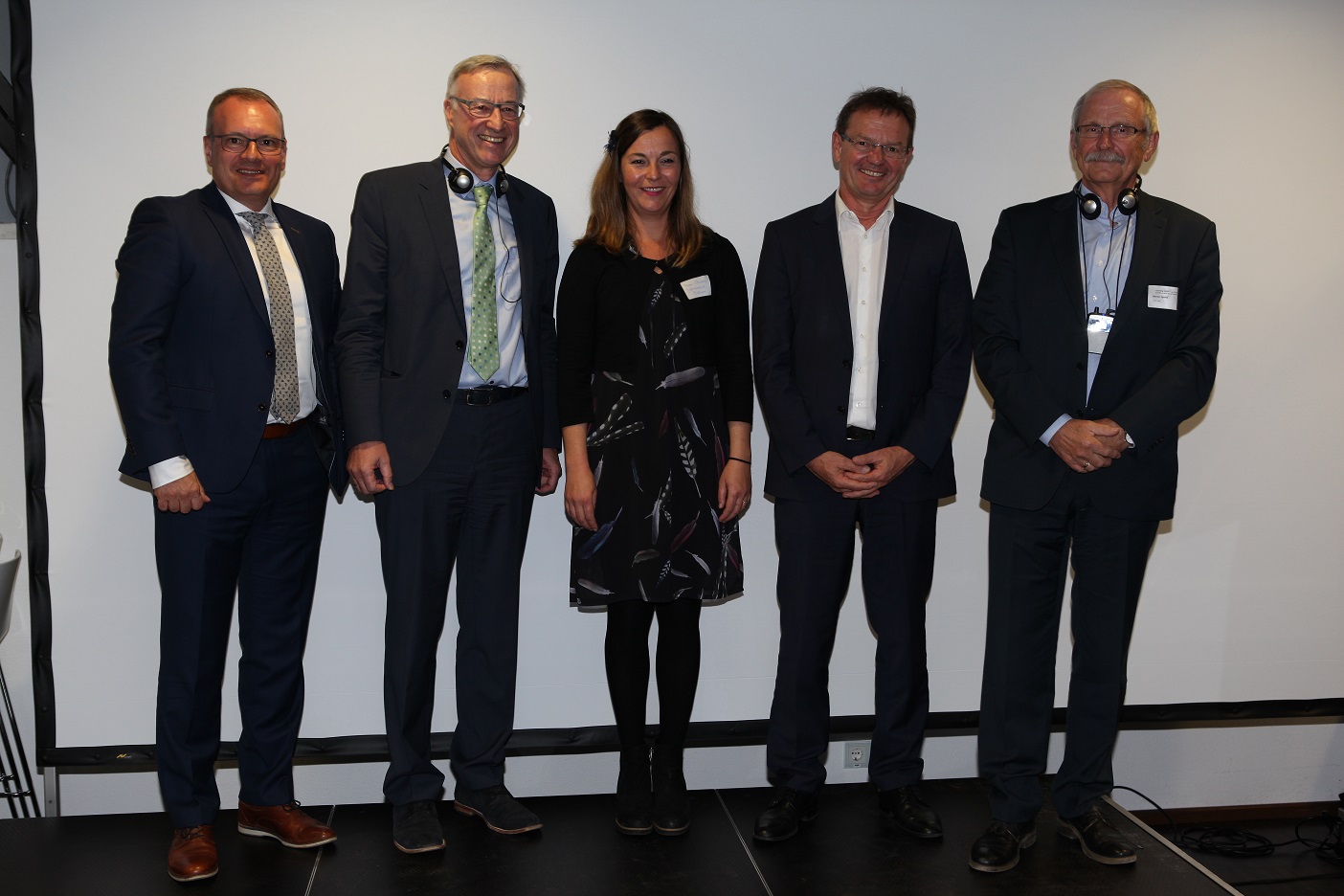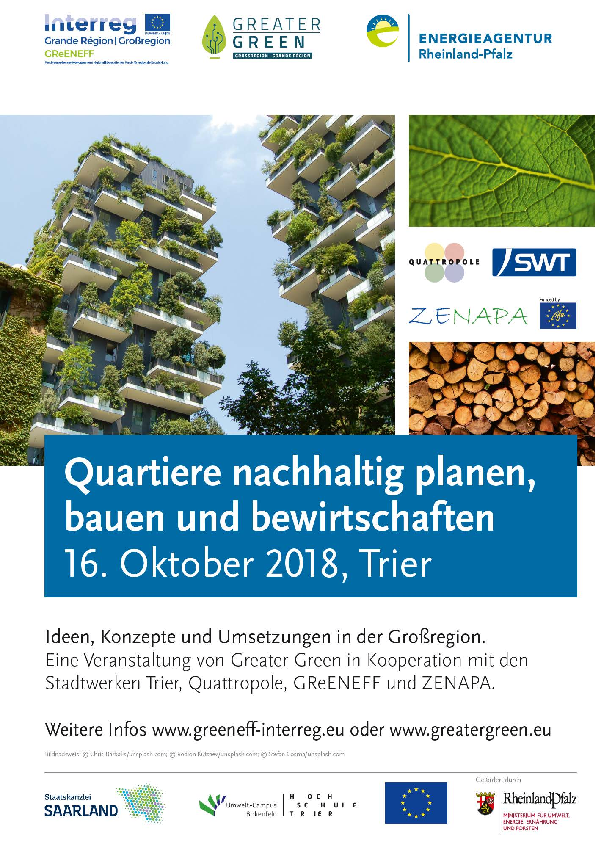At the invitation of the Meta-Cluster for Environmental Technology Greater Green, the Interreg project GReENEFF, the Life Project ZENAPA, the Quattropole and the Trier Public Utility Company, the International Conference "Sustainable Planning, Building and Managing Neighbourhoods - Ideas, Concepts and Implementation in the Greater Region" was held on 16 October 2018. The construction industry is one of the resource-intensive sectors of the economy. The construction industry therefore plays a key role in implementing resource and energy efficiency and in sustainable development. "Sustainable cities and communities" is therefore also one of the 17 sustainability goals of the "Agenda 2030 for Sustainable Development" of the United Nations, which aims to fundamentally improve the living conditions of present and future generations of people and to protect the planet.
The event met with unexpectedly great interest, particularly among experts in the construction industry, urban development, energy management, waste management and public administration in the Greater Region. Around 160 people from all five parts of the Greater Region, the French region of Grand Est, Luxembourg, Rhineland-Palatinate, Saarland, Wallonia and neighbouring regions took part in the conference on sustainable construction on the premises of the Trier public utility company.
In their speeches at the beginning, the speakers of the greetings emphasised the great opportunities - which are at the same time, however, partly necessities - of the cooperation of public administrations and corporations, chambers, interest groups, companies and academic institutions in the Greater Region. Only together could global challenges such as climate change or securing international competitiveness be overcome.
The host of the conference himself is setting a good example. In numerous projects, Stadtwerke Trier (STW) is actively involved in climate protection, reports SWT board member Arndt Müller. Furthermore, the company is permanently looking for exchange and cooperation with the University of Applied Sciences Trier and partners from the greater region.
"Everybody in Rhineland-Palatinate was able to experience during the torrential rainfalls at the beginning of June this year that climate change has also arrived here in the state," emphasised the State Secretary in the Rhineland-Palatinate Ministry for the Environment, Energy, Food and Forests, Dr. Thomas Griese, in his speech. Therefore, he said that it was a particularly important concern to make people aware that major savings in CO2 emissions were possible in the area of "building and living".
"The University of Applied Sciences Trier with its four locations is very centrally located in the Greater Region. Therefore, it only makes sense to use the chances of this proximity, especially with regard to the transfer of knowledge and technology and as an internationally positioned educational institution", explained Prof. Dr. Norbert Kuhn, President of the University of Applied Sciences Trier. His university specifically uses EU funding programmes such as Interreg to establish networks and contacts in the Greater Region, which enable the exchange between experts from business, administration and science.
Florence Jacquey, Managing Director of the Summit Secretariat of the Greater Region, emphasised in her speech the great potential of living together in the Greater Region. "The planning and organisation of the conference alone reflects the vitality and dynamism of cross-border cooperation and dialogue in the Greater Region", she pointed out. The organisers would use the conference to turn the diversity of the Greater Region into a common cross-border added value in a natural, authentic and successful way.
Unanimously, the opening speakers emphasized the achievement of Greater Green, which bundles, structures and makes visible the common competences. As a meta-cluster for environmental technology in the Greater Region with its central location at the Umwelt-Campus Birkenfeld (University of Applied Sciences Trier), its work includes internationalisation, market development, innovation promotion, networking and consulting of clusters, science and administration with reference to the GreenTech industries. The cross-border exchange of knowledge and best practices, as on this day, helps the Greater Region to become more innovative.
Following the conference, Dr. Peter Mösle, Managing Director of Drees & Sommer and co-founder of the German Sustainable Building Council (DGNB), provided fruitful impetus for the rest of the conference as expected. In essence, he presented to the audience the significance of the "cradle-to-cradle" approach for a sustainable construction industry. According to this approach, a building should already be understood in its conception phase as a material bank in order to be able to use scarce but also renewable raw materials more than once, i.e. efficiently.
Motivated by the many inspirations from the lectures, the poster exhibition and personal exchanges during the friendly get-together in the lunch break, the participants went to their respective selected workshops for 1.5 hours in the afternoon: "Healthier Cities for People and Animals", "Quarters of the Future", "Digitisation in Municipal Energy Management" and "Green Architecture". All four workshops shared the insight that a sustainable change in the construction industry and in urban and regional planning can only succeed on a broad scale if the political, social and technological environment supports this transformation. As an example, the workshop "Neighbourhoods of the Future" pointed out the difficulty that in the construction of eco-neighbourhoods it is often not possible to find suitable bidders (craft enterprises with needs-based qualified personnel).
The conference day ended with a panel discussion between the mayors of the quattropole cities of Luxembourg, Metz, Saarbrücken and Trier on challenges and approaches to solutions in the areas of sustainability and innovation.




